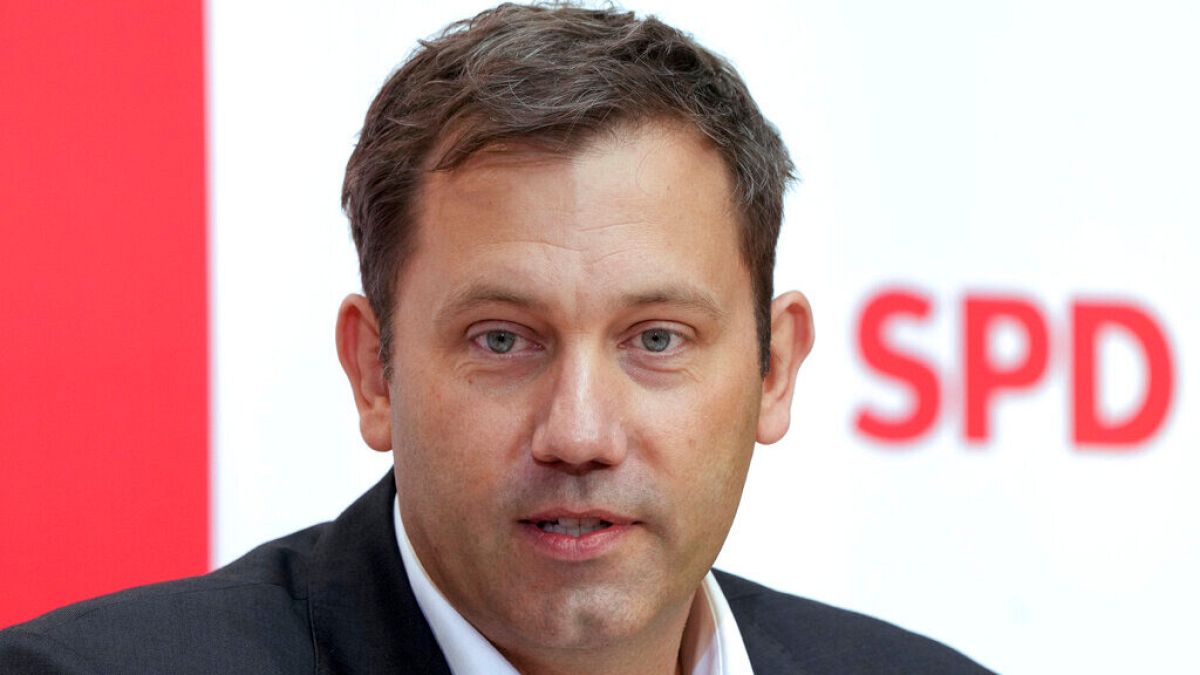Leading German politicians compare Elon Musk to Vladimir Putin over AfD endorsement

The tech billionaire and close Trump ally has sent shockwaves through German politics by publicly endorsing the far-right Alternative to Germany party weeks before snap federal elections.
The co-leader of Germany's Social Democratic Party (SPD), Lars Klingbeil, has compared tech billionaire Elon Musk to Russian President Vladimir Putin, saying his decision to weigh in on German politics weeks before the country's snap elections is an example of "interference".
Musk caused uproar in Germany last week by publicly supporting the extreme party Alternative for Germany (AfD) on his social media platform, X. Despite the barrage of criticism that ensued, he doubled down on his remarks on Saturday in an op-ed for the country's Welt am Sonntag newspaper.
“The portrayal of the AfD as rightwing extremist is clearly false, considering that Alice Weidel, the party’s leader, has a same-sex partner from Sri Lanka!" Musk wrote. "Does that sound like Hitler to you? Please!”
When the op-ed was announced, the outlet's opinion editor, Eva Marie Kogel, resigned in protest.
In an interview with Funke Mediengruppe on Monday, Klingbeil likened Musk to Putin, saying that "both want to influence our elections and are deliberately supporting the AfD, the enemies of democracy. They want Germany to be weakened and plunge into chaos."
"We need to be much more proactive and effectively limit the power of the large internet platforms like Musk's short message service, X. Here, a tech billionaire is trying to use his influence to influence the course of world politics."
Klingbeil's SPD co-leader, Saskia Esken, also condemned Musk as a meddler.
“Anyone who tries to influence our election from outside, who supports an anti-democratic, misanthropic party like the AfD, whether the influence is organised by the state from Russia or by the concentrated financial and media power of Elon Musk and his billionaire friends on the Springer board, must expect our tough resistance,” she told Reuters on Sunday.
Friedrich Merz, who leads the country's largest opposition party, the CDU, described Musk's as "intrusive and presumptuous" and called it an unprecedented example of election interference between "friendly" countries.
Merz said Musk had overlooked several of the AfD's policies when drafting his op-ed, including its stated desire for Germany to leave the European Union, something Merz and many others argue would be extremely damaging to Germany's economy.
Musk has repeatedly said the AfD is Germany's last hope, claiming other political parties have failed the country and led to its "economic stagnation" and the "erosion of national identity".
But while Weidel is indeed in a same-sex civil union, the AfD have been one of the loudest voices against LGBTQ+ rights in German parliament. In 2019, ahead of regional elections in its stronghold of Thuringia, the party filed a motion to revoke same-sex marriage.
On the same page as Musk's op-ed, Welt am Sonntag's editor in chief-designate, Jan Philipp Burgard, acknowledged the op-ed would be controversial, writing in a response that “Musk’s diagnosis is correct, but his therapeutic approach, that only the AfD can save Germany, is fatally flawed”.
The AfD is currently polling in second place behind the CDU ahead of Germany's federal election. However, all other major parties have ruled out the possibility of forming a coalition with it.
Since 2021, the domestic intelligence service has classified the AfD as a suspected extremist organisation, a designation the party has fought against in the courts. Certain sections of the AfD, including its entire youth wing, are considered particularly extreme, and several high profile members have been convicted for using banned Nazi-era slogans whilst campaigning.
This week, members of the Green Party renewed calls for the AfD to be banned after investigative outlet Correctiv revealed details of a mid-December meeting between party figures and members of banned extremist movements on the subject of "remigration".
"Remigration" is a vaguely worded strategy of deporting migrants from Germany and "non assimilated" legal German citizens en masse. It has been touted by members of the AfD alongside other hardline anti-immigration ideas.
Musk has repeatedly expressed support for the AfD's approach to immigration, as has Vice President JD Vance, who expressed a more tacit endorsement of the AfD on X, saying sarcastically "It’s so dangerous for people to control their borders".
The official position of president-elect Donald Trump's incoming administration on the AfD is not yet known.
Online, Musk faced derision as he posted his op-ed on X mistakenly calling the outlet "Weld" instead of "Welt", attracting comments that he lacks the knowledge of Germany's domestic politics to justify his commentary on it.
It's not the first time Musk has come out in support of a radical right-wing European party. Earlier this month, he met with the leader of the UK's far-right Reform UK, Nigel Farage, raising speculation that he would be making a substantial financial donation to the party.
No comments:
Post a Comment